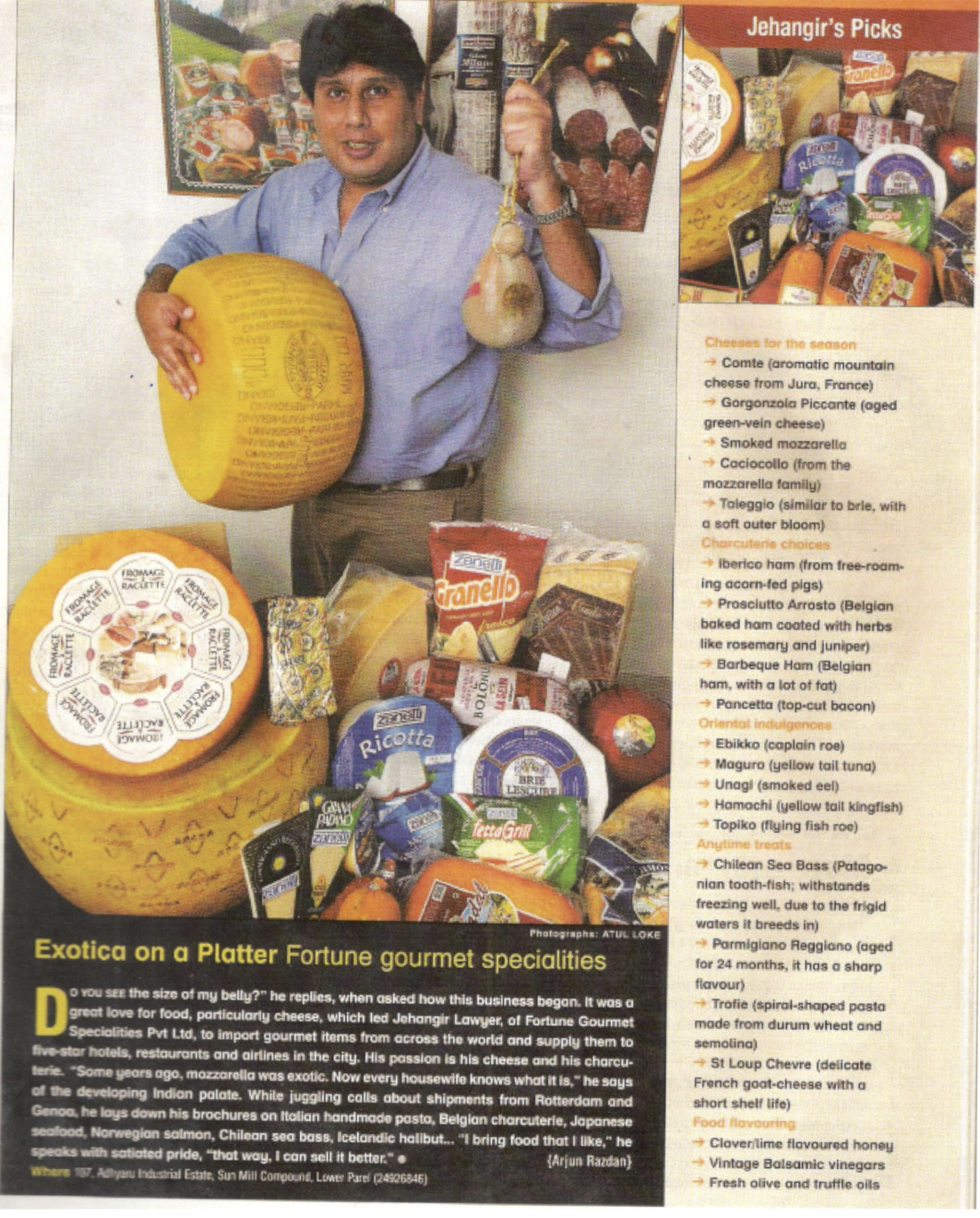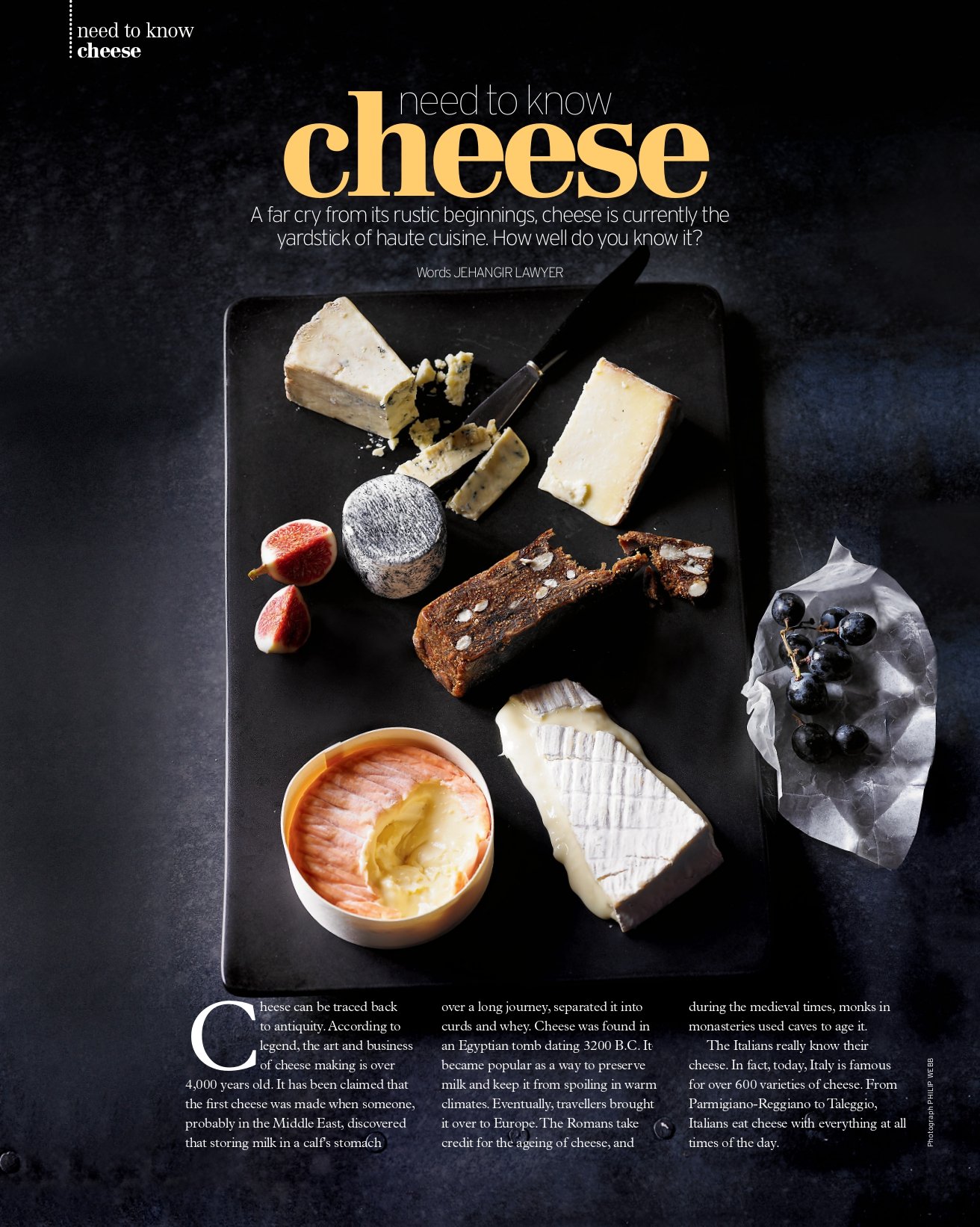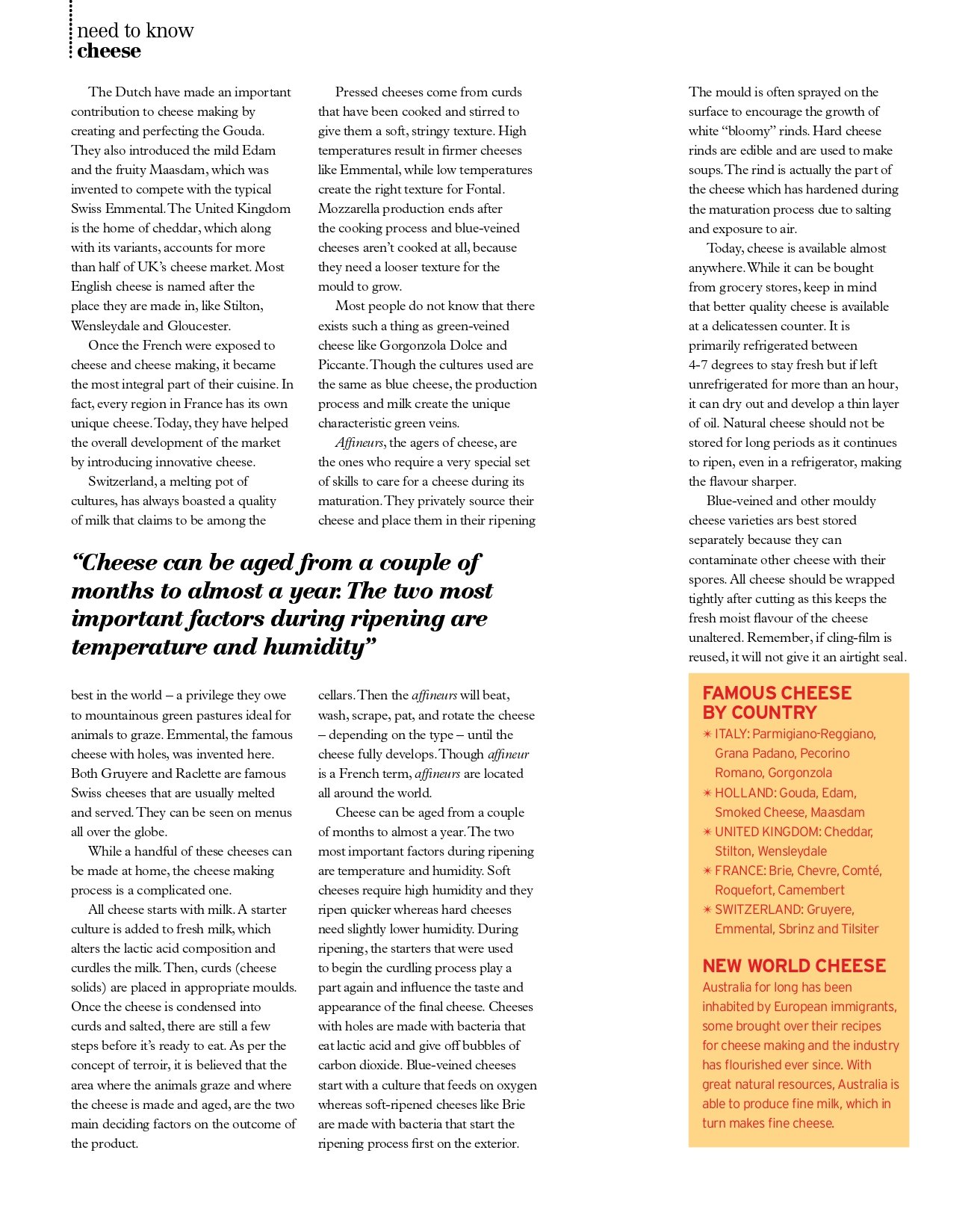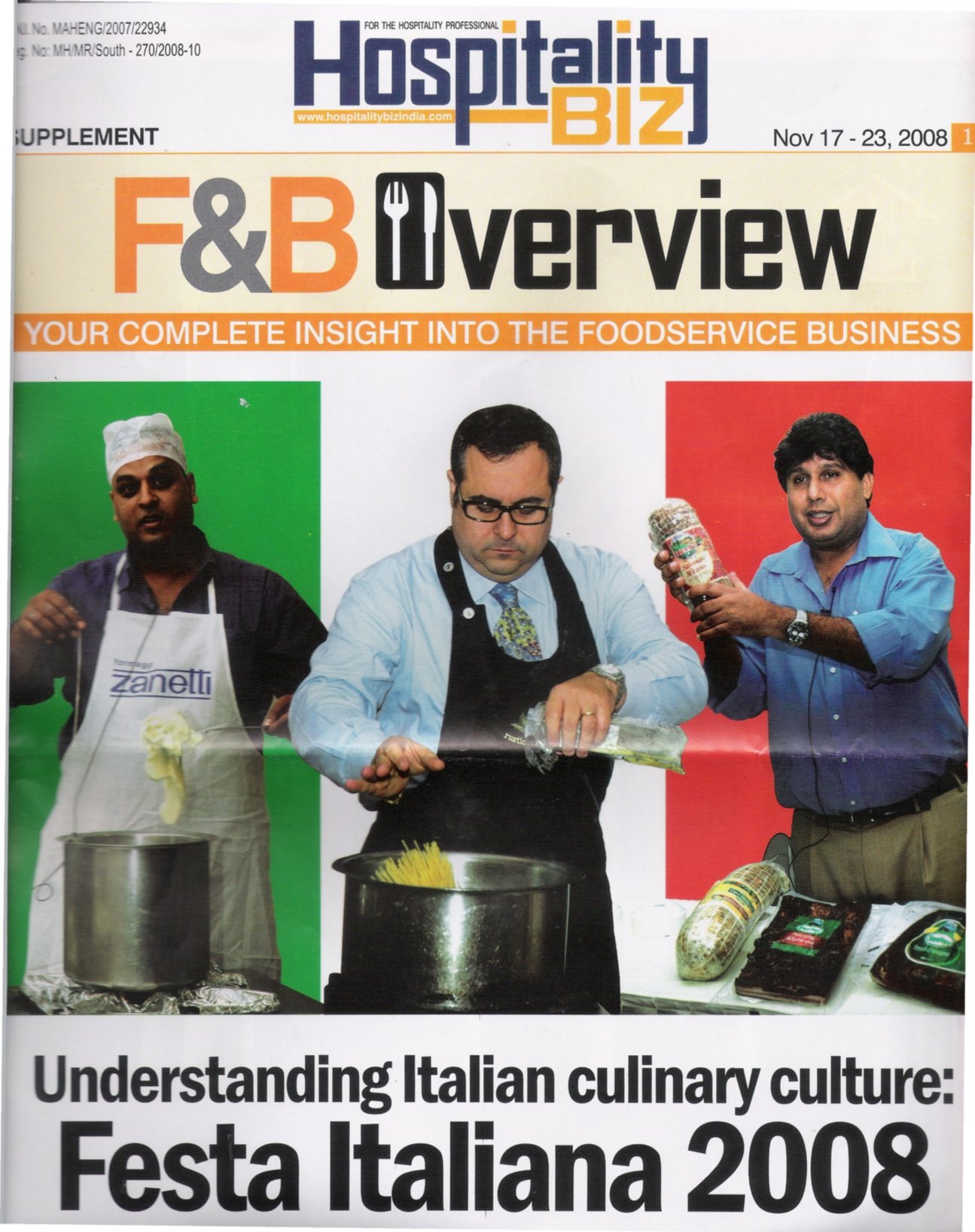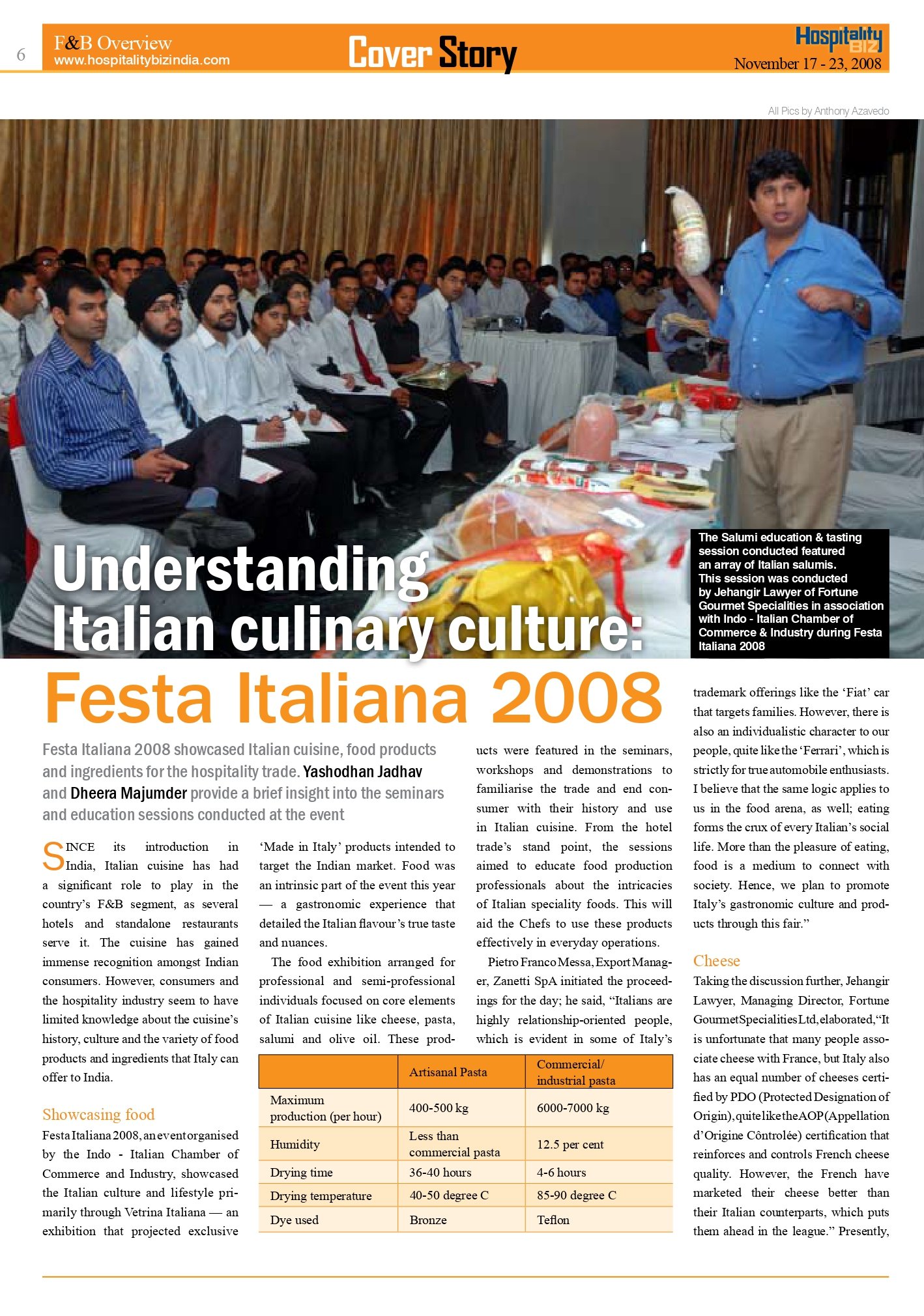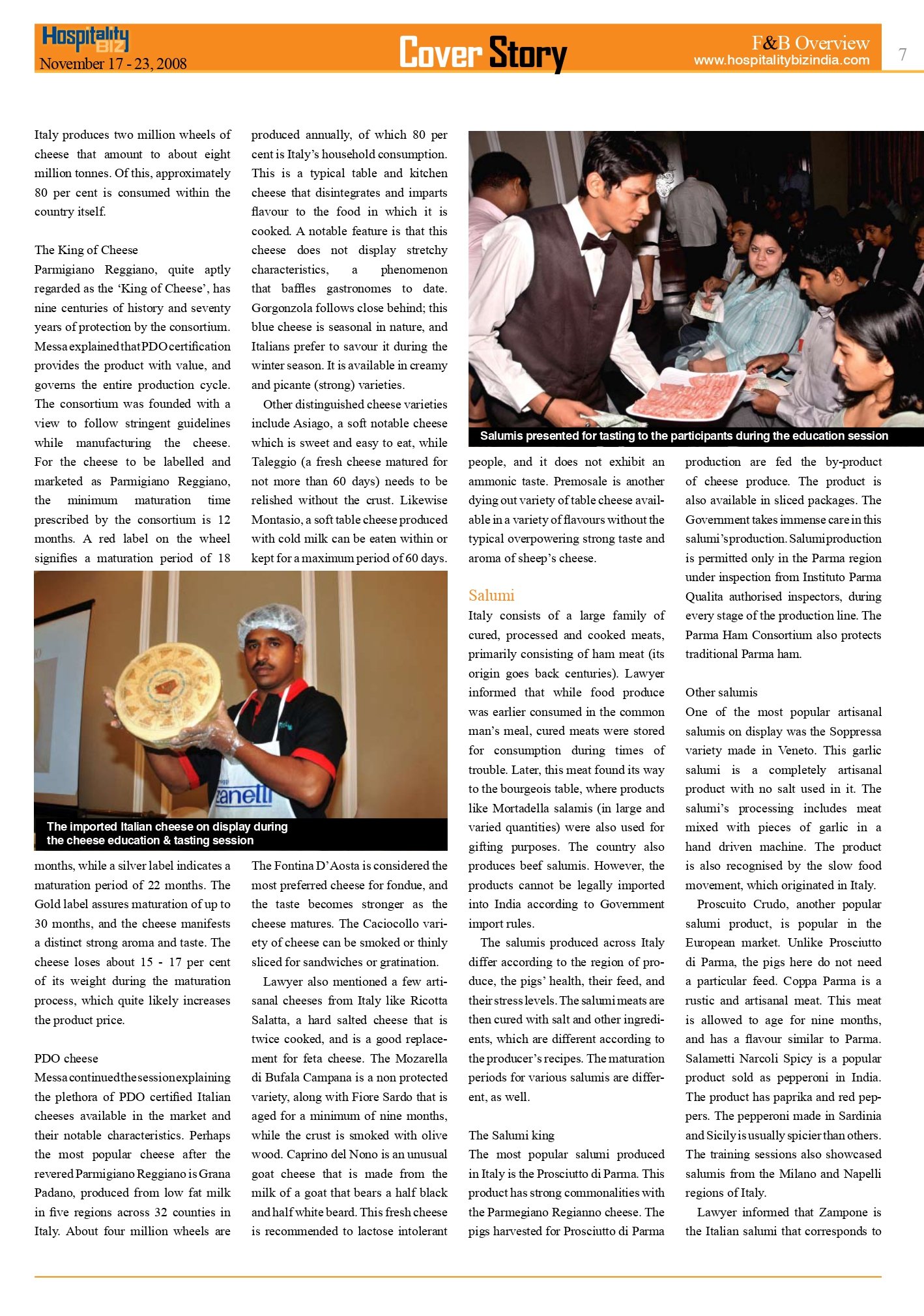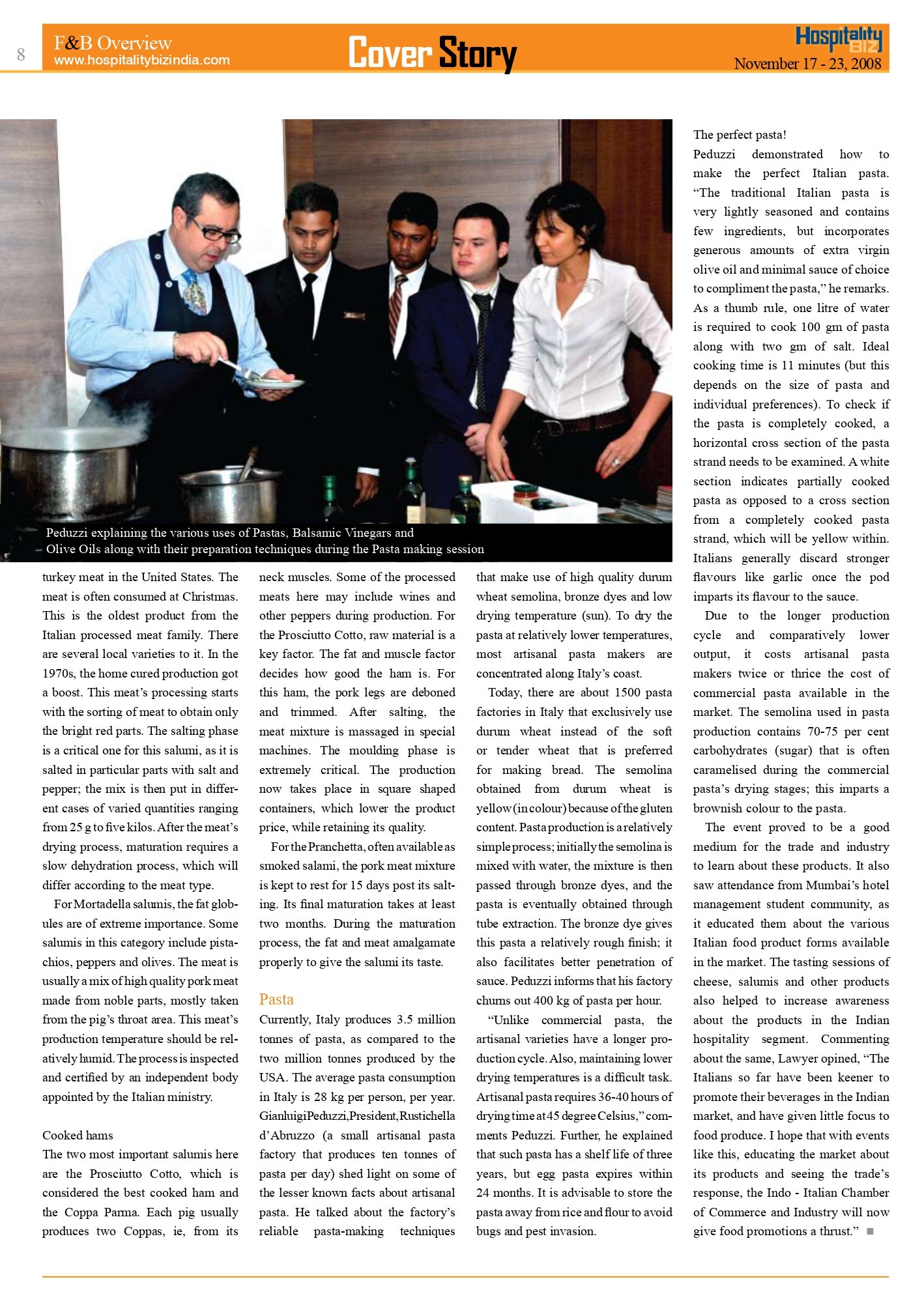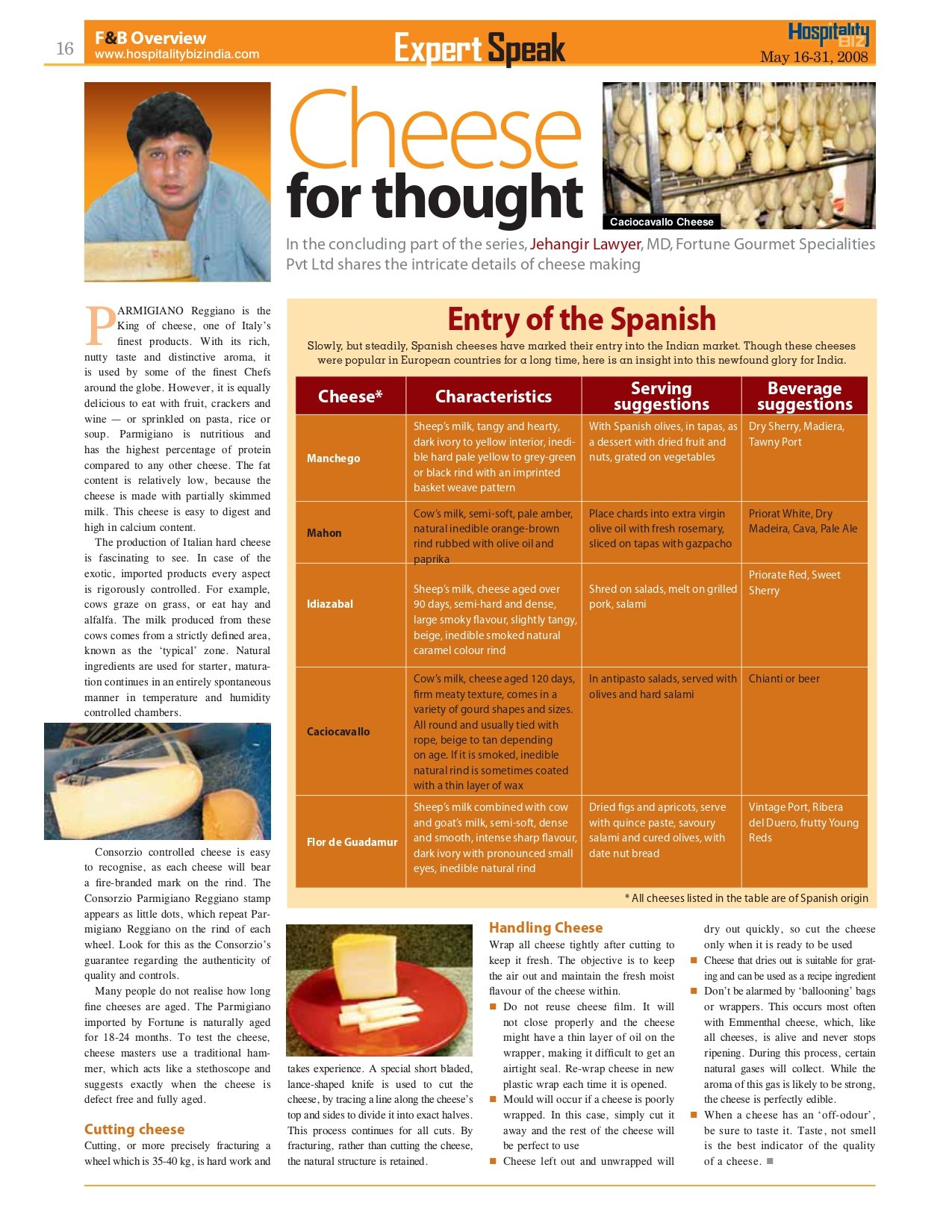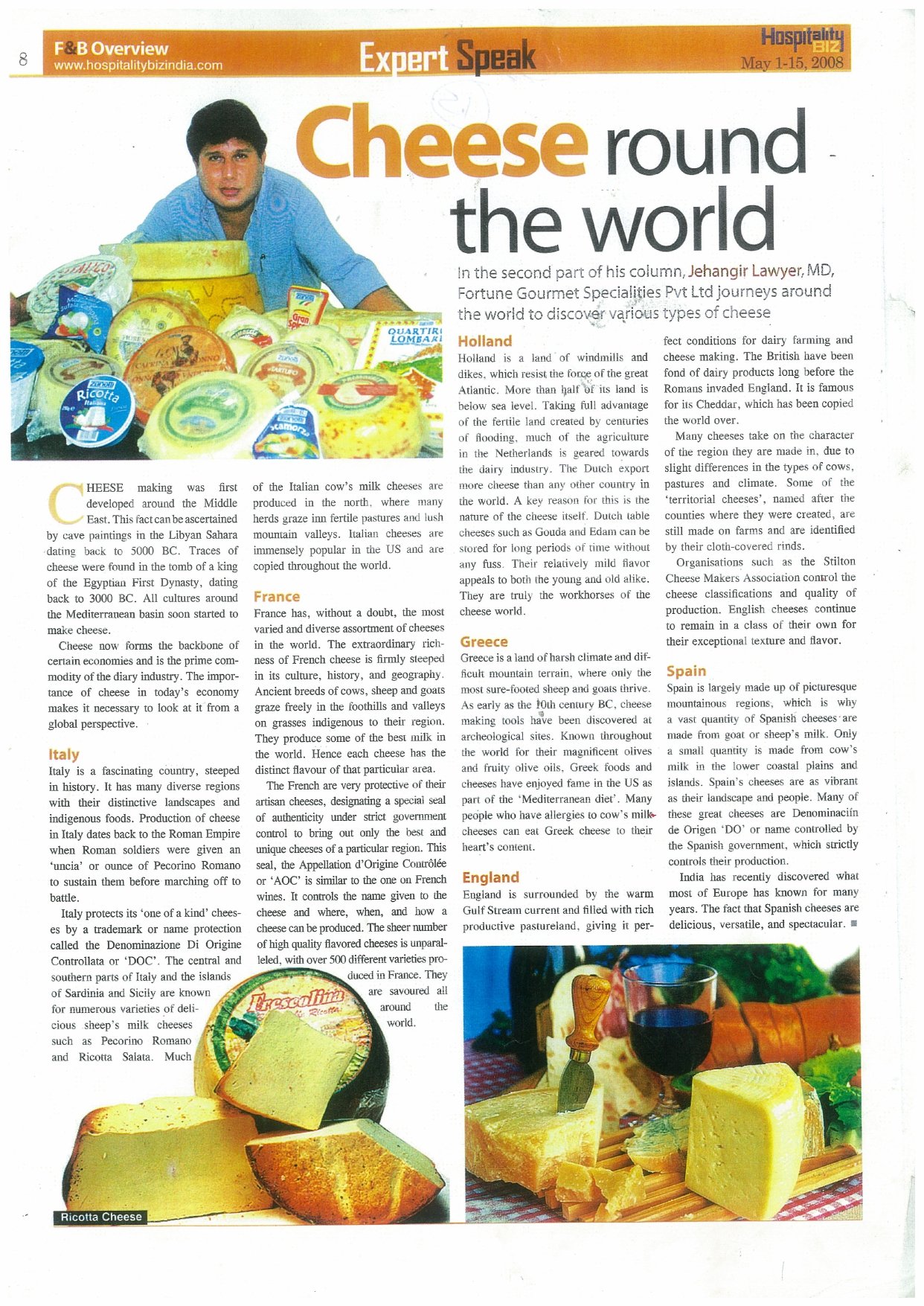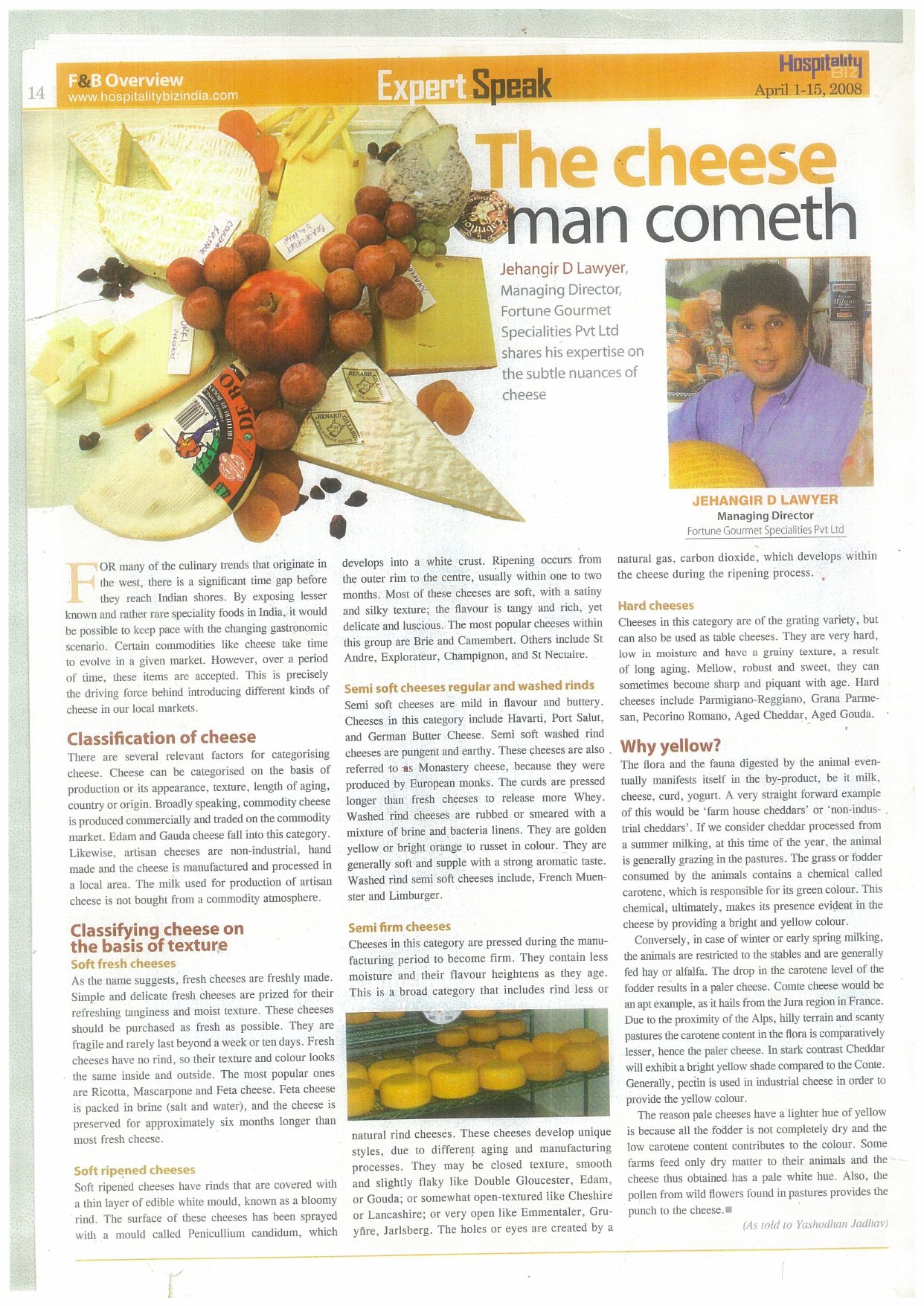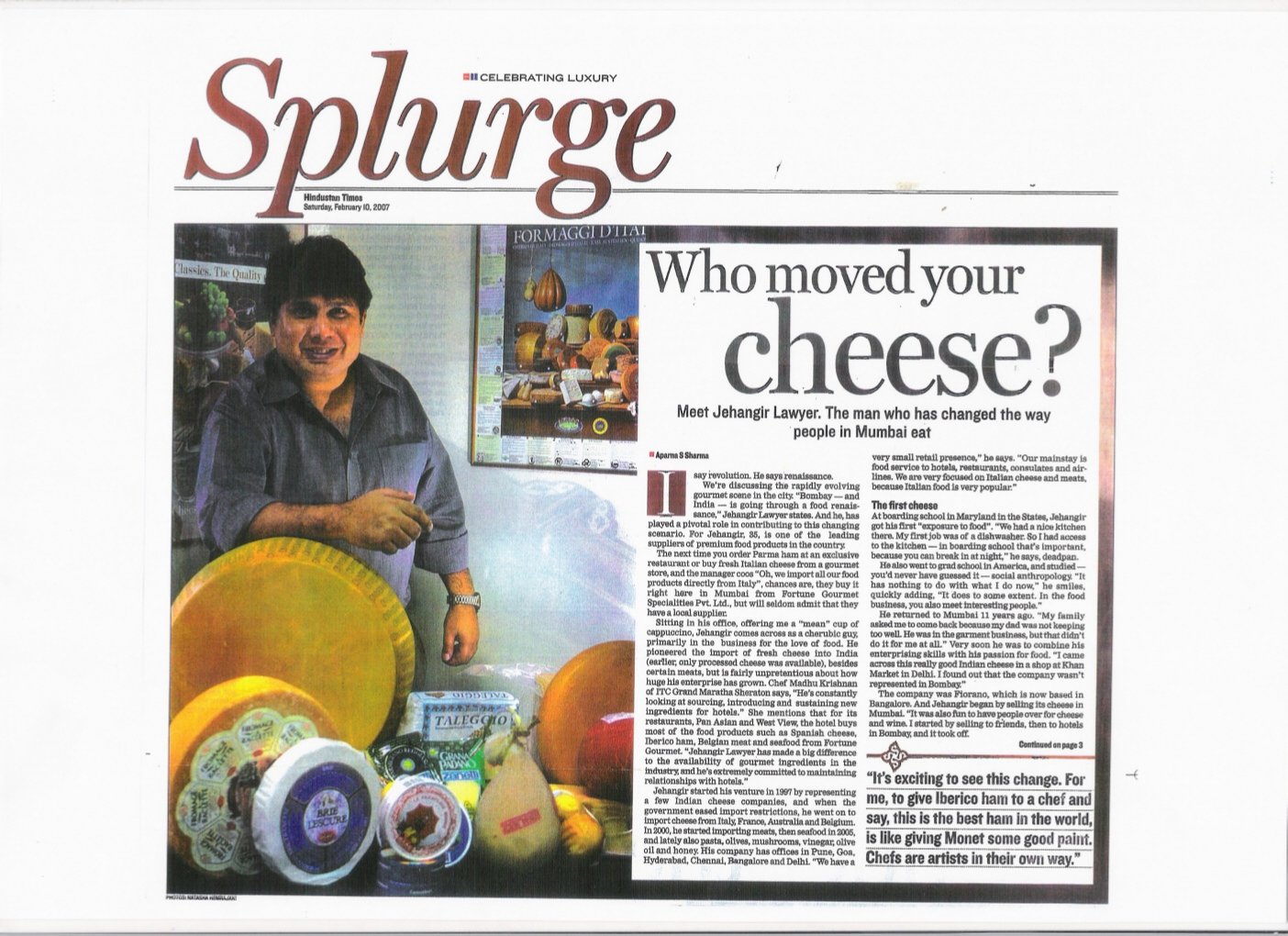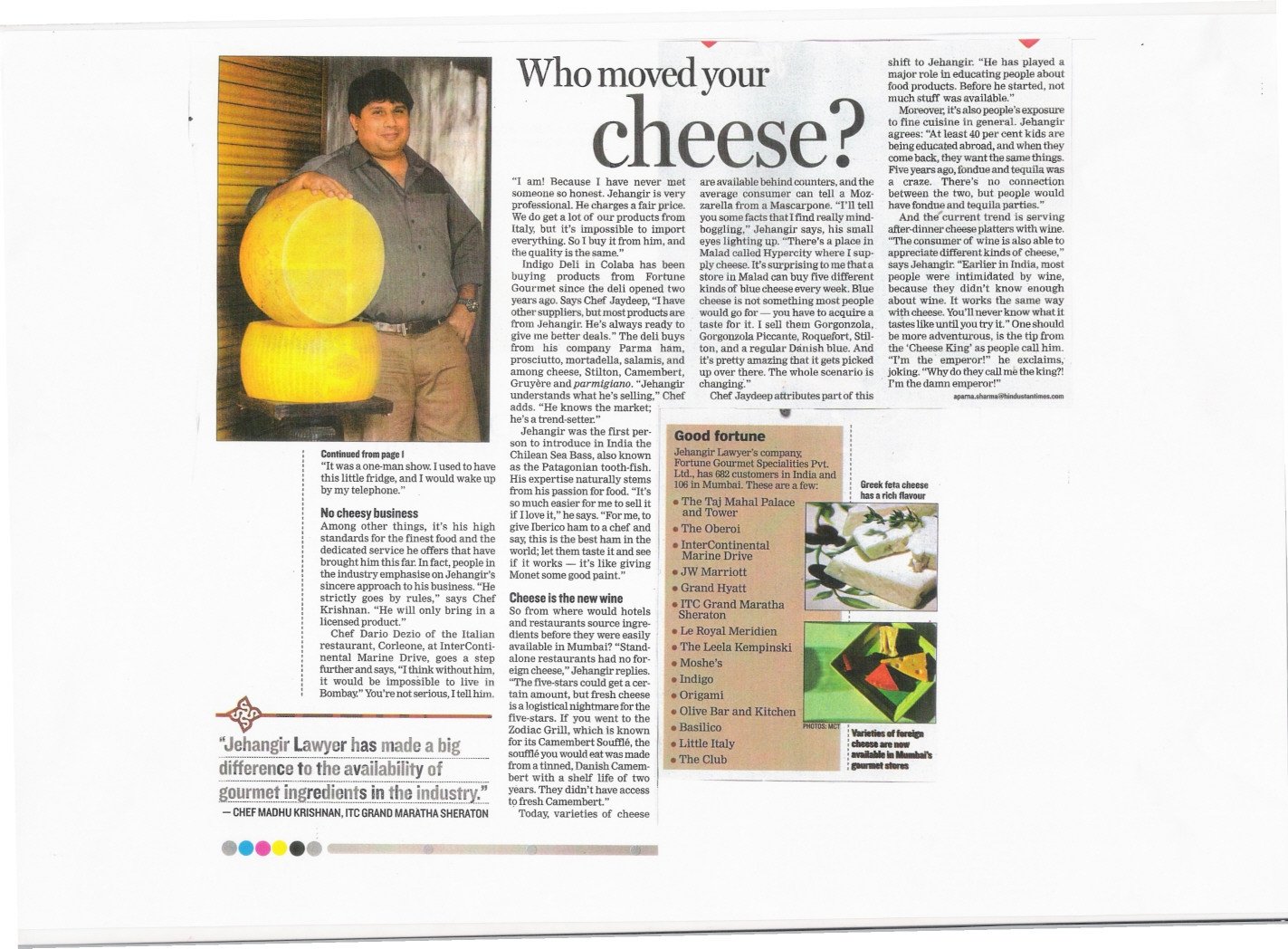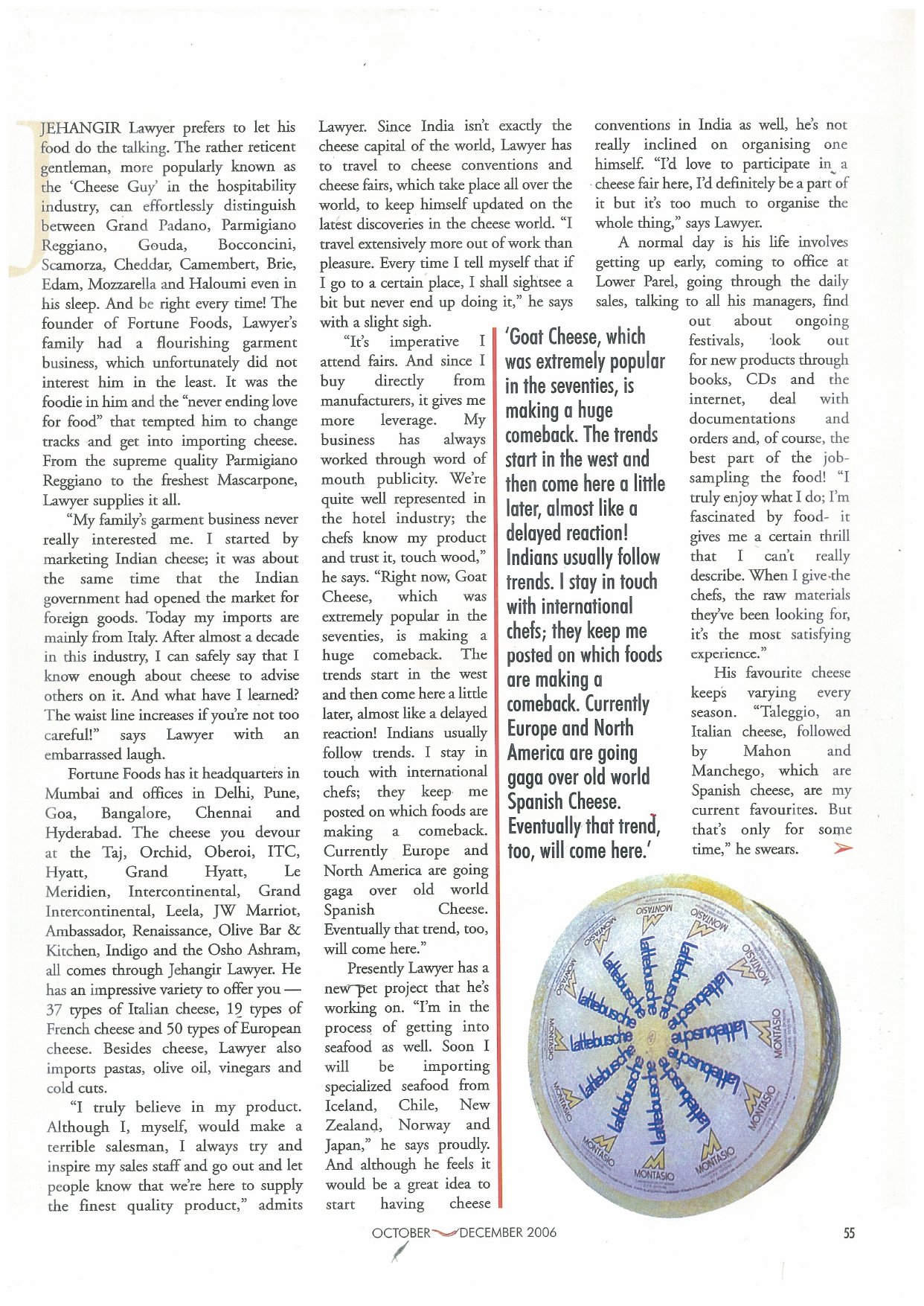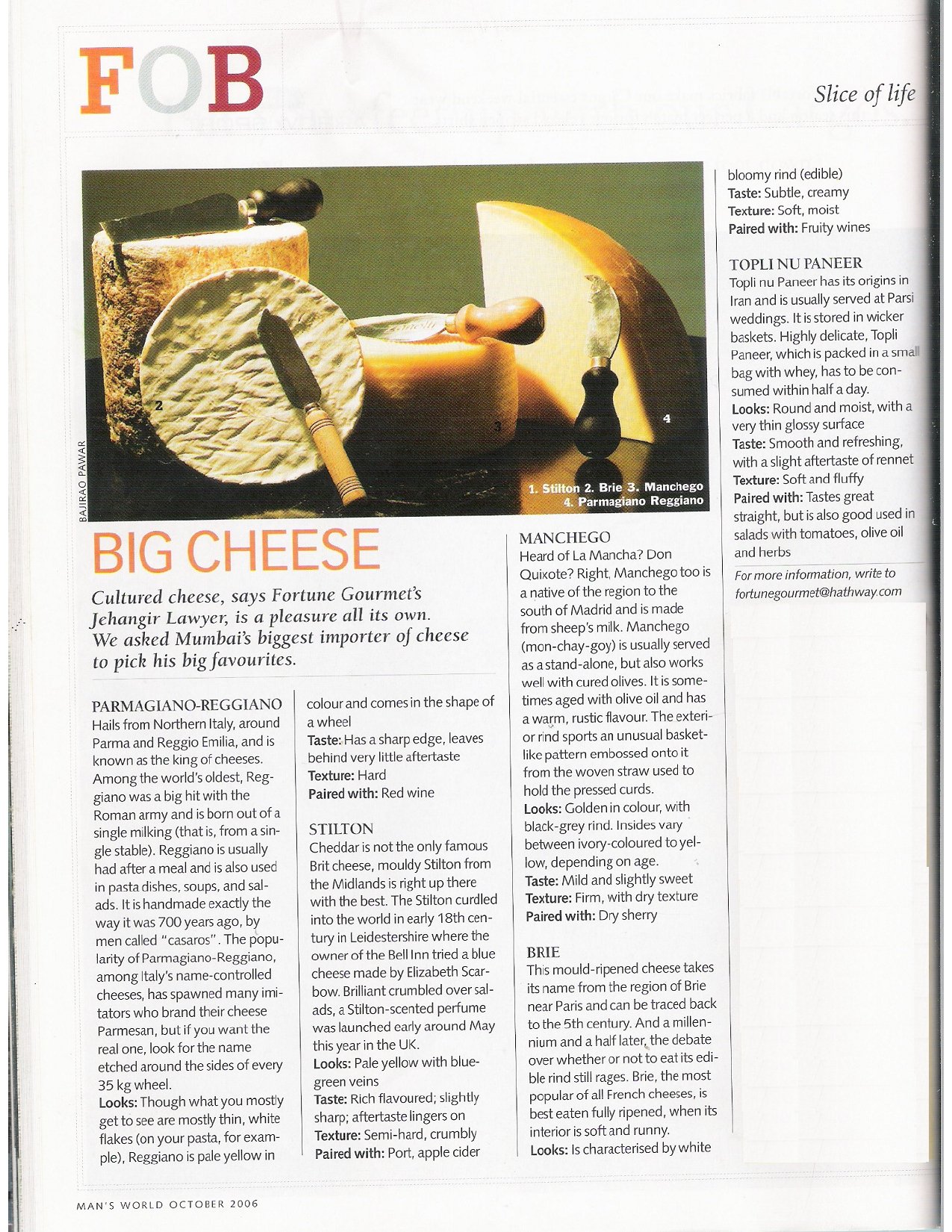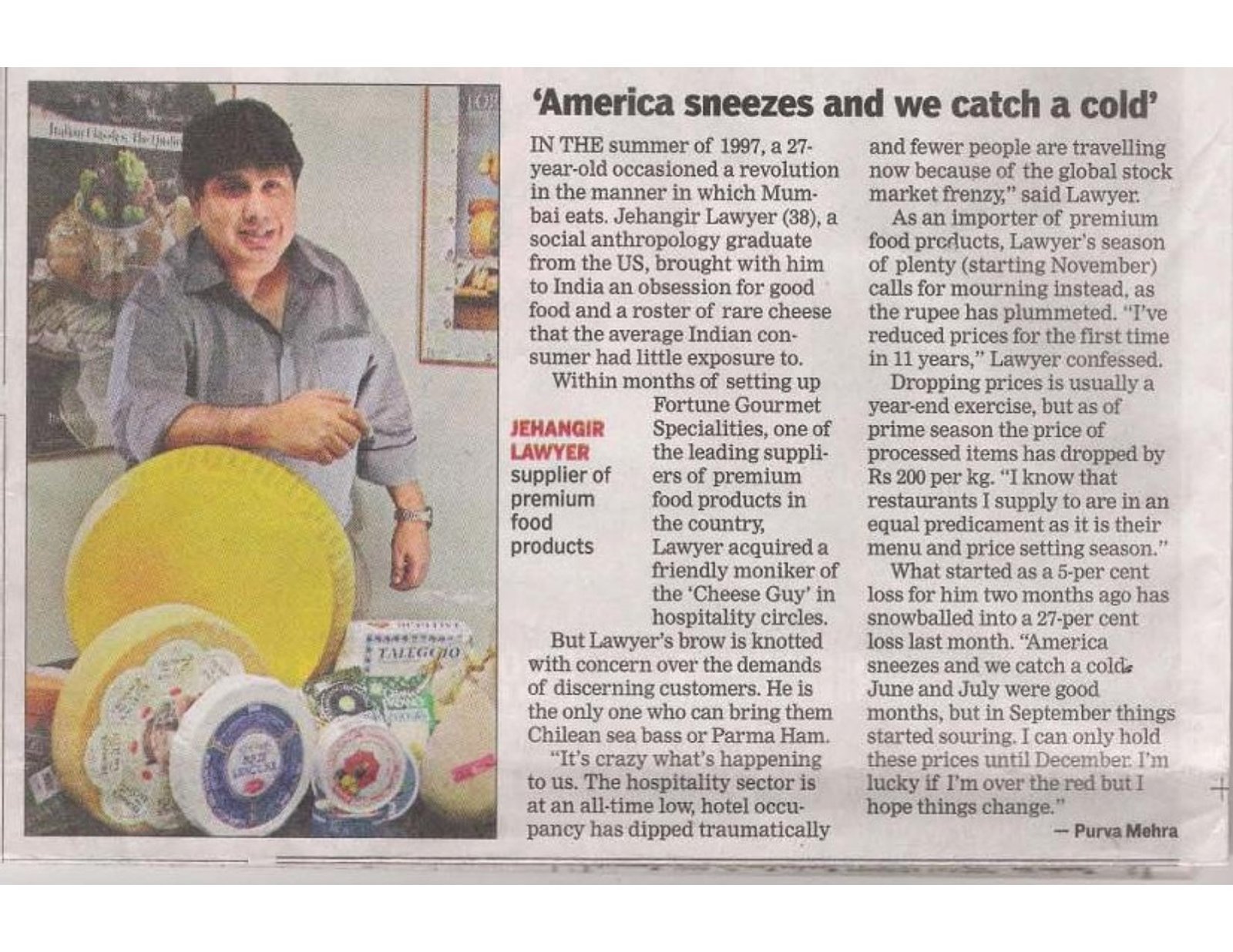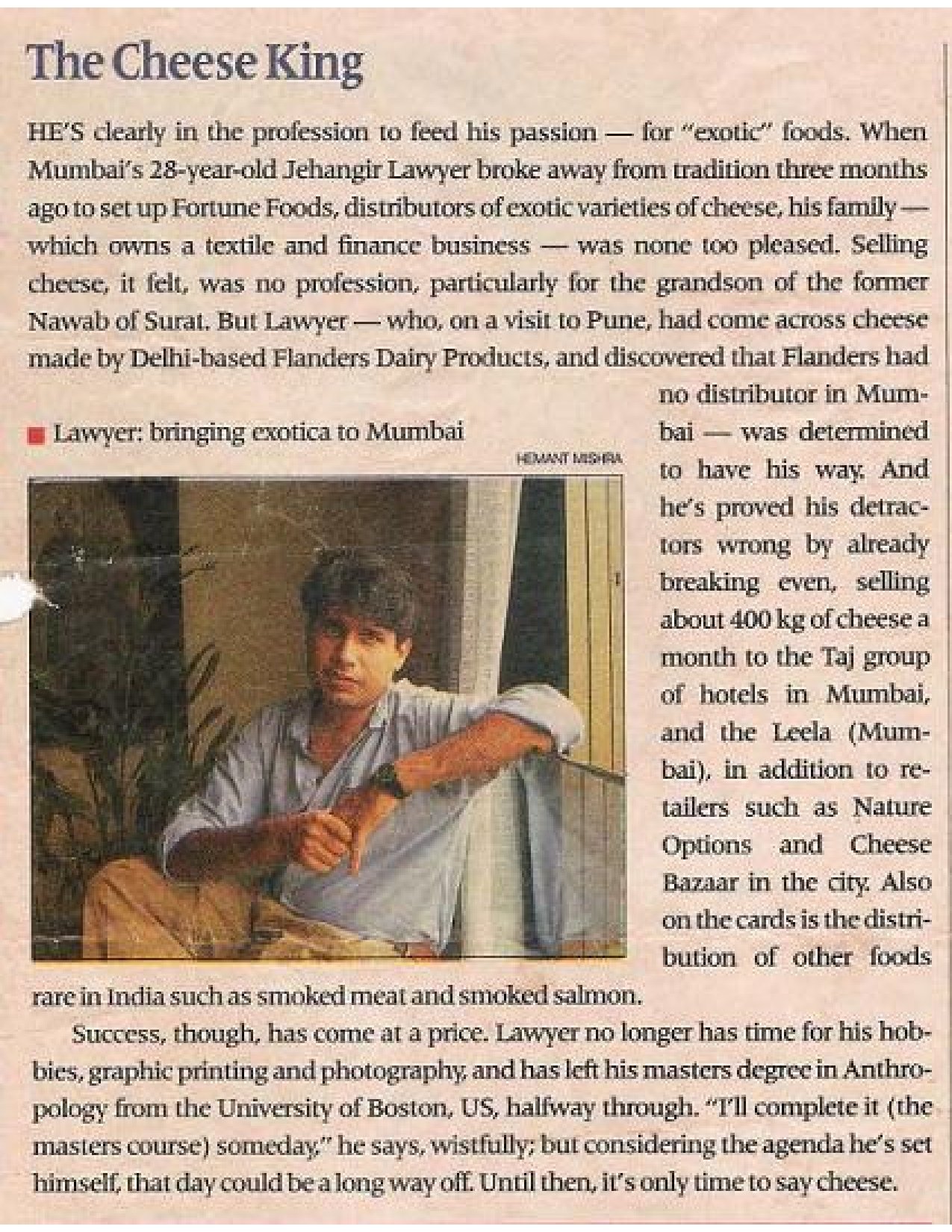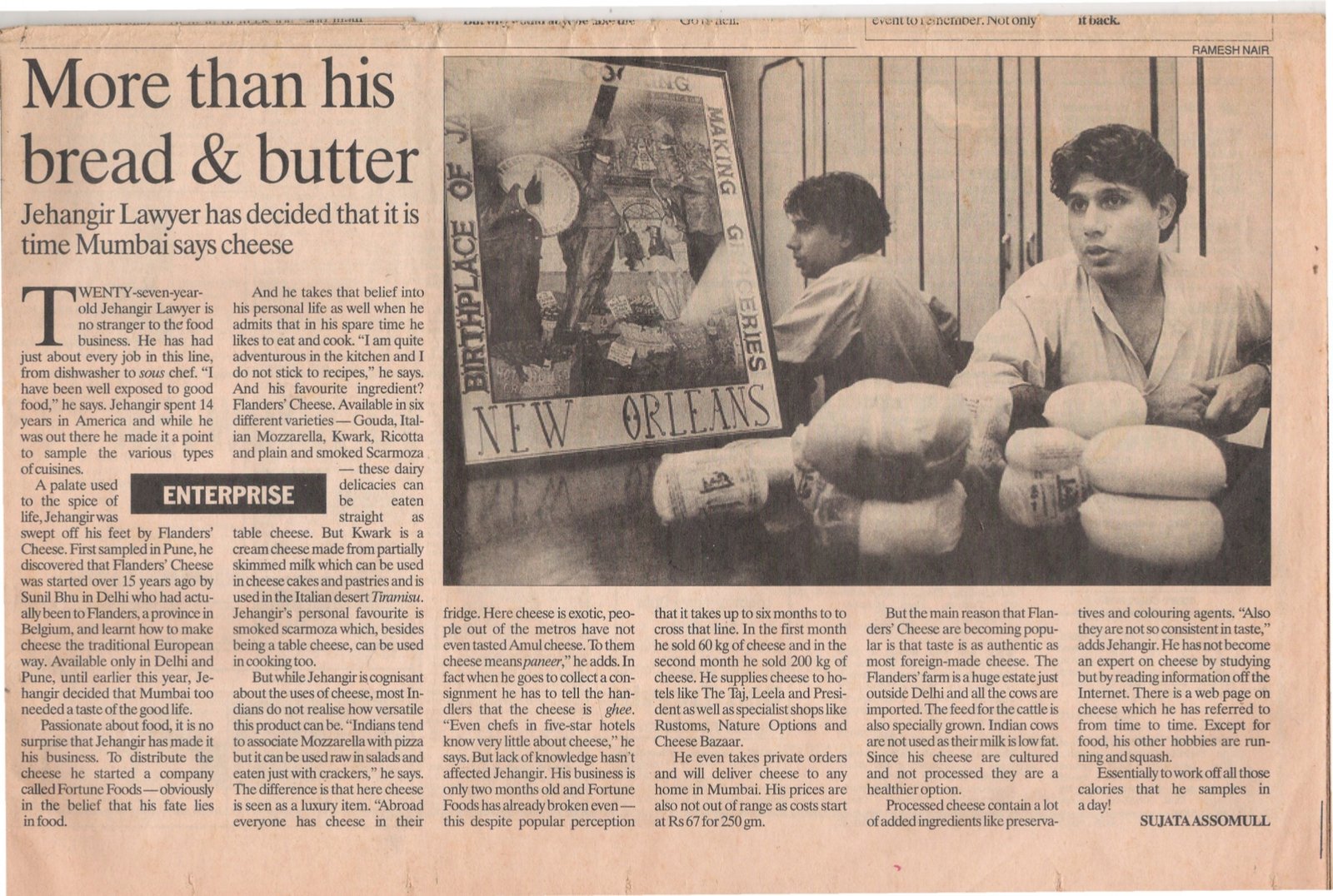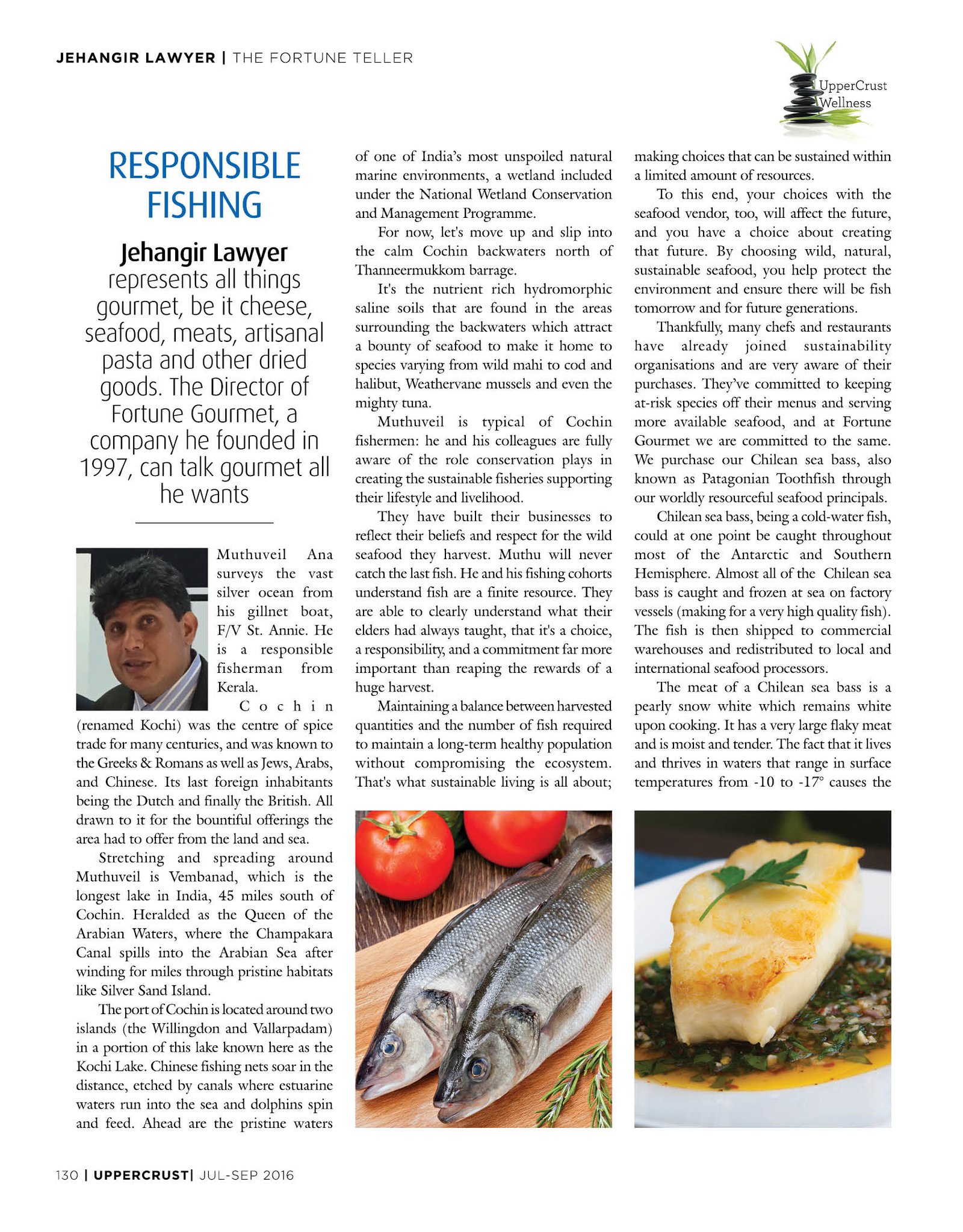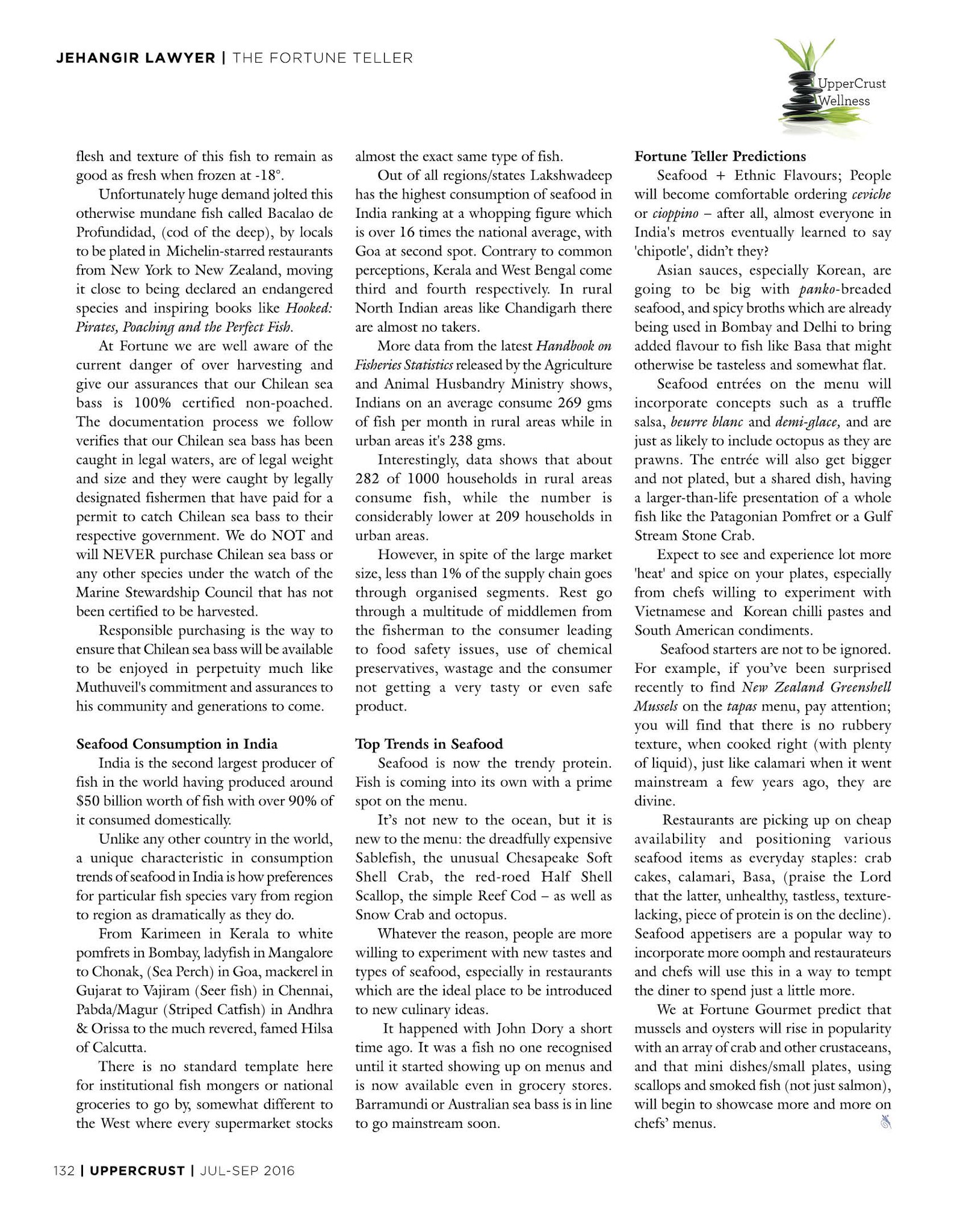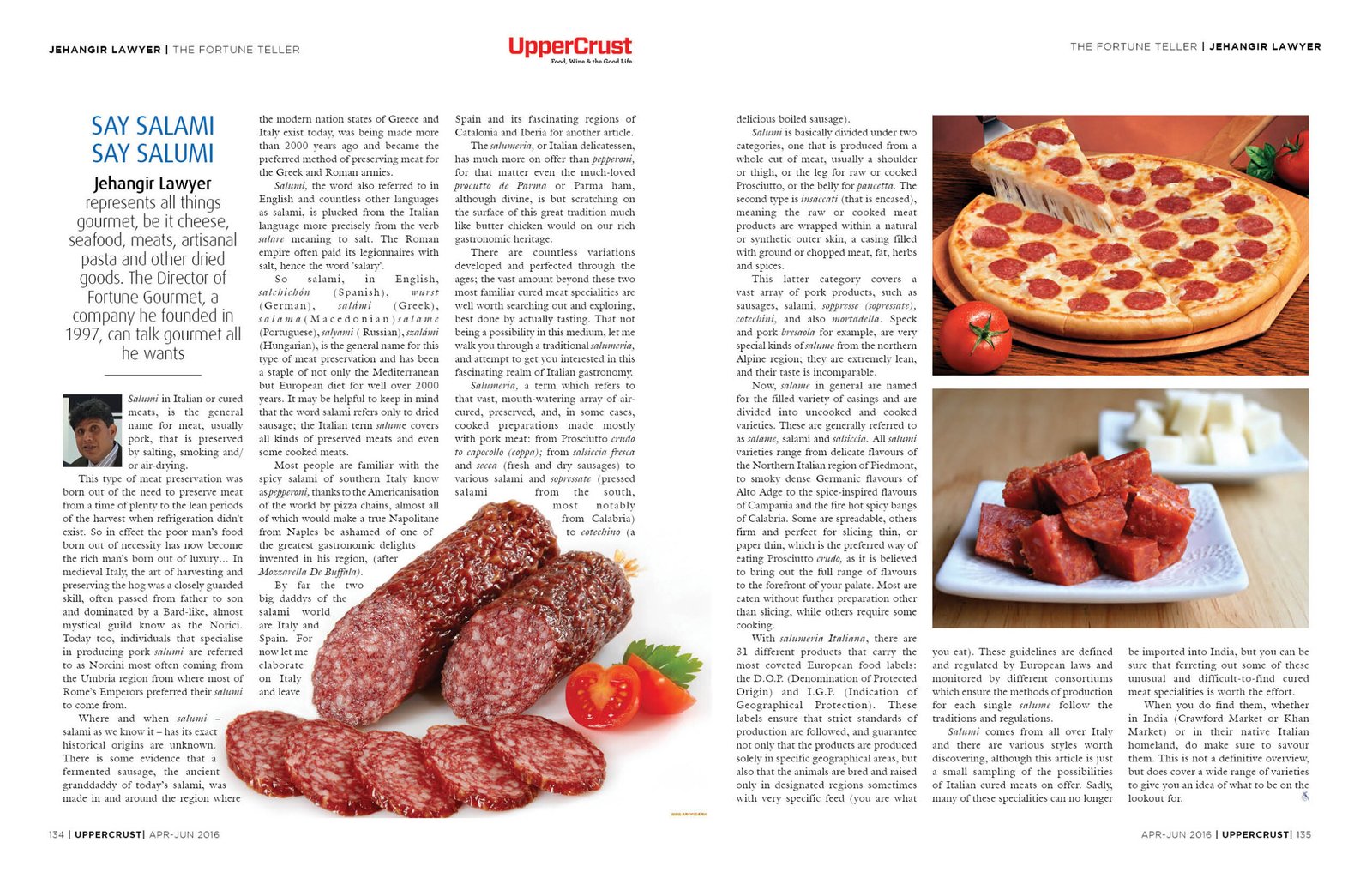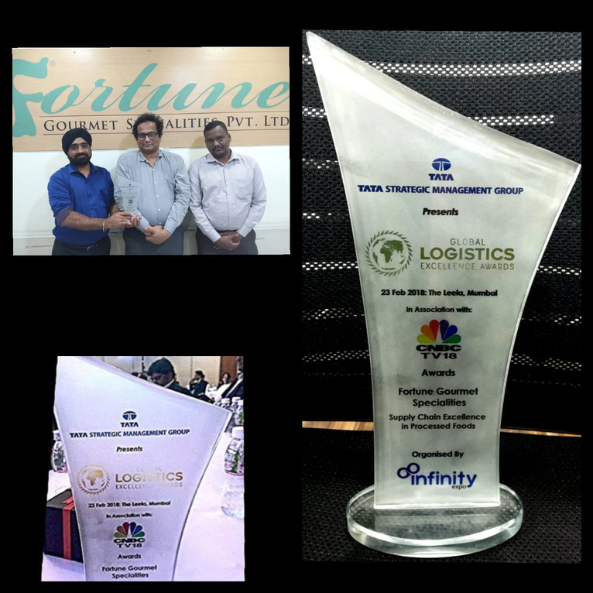In the News
Online Media
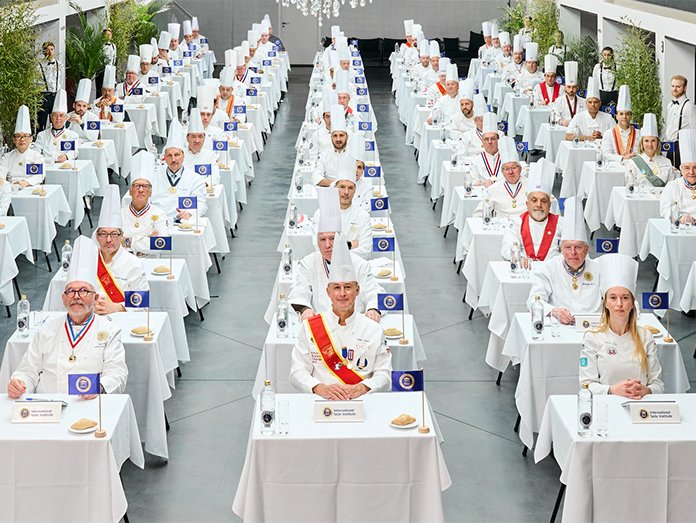
Greek dairy excels at International Taste Awards
The International Taste Institute announced the products that stood out in the Dairy Category of the Superior Taste Awards 2022
Print Media
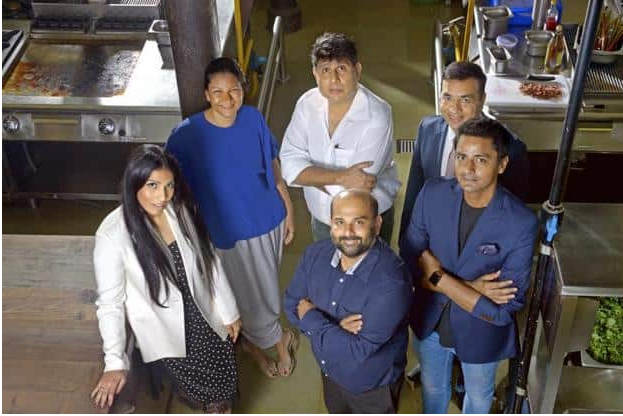
The Economics Of Your Dinner Plate
For our salon Lounge Loungewhere we bring together thought leaders for a deep divewe look at the challenges of sourcing in the fine-dining space
(Clockwise, from left) Aishwarya Nair Mathew, Gauri Devidayal, Jehangir Lawyer, Parveen Chander Kumar, Manu Chandra, and Aditya Raghavan. Photo: Abhijit Bhatlekar/Mint
By Divya Kohli, By Komal Sharma
In India, the food we ate and cooked was always linked with local biodiversity, regional food habits and changing seasons. Over the last decade and a half, a boom in the fine-dining sector led us towards homogeneity in ingredients and a standardization of menus across generic European café-style restaurants. Now, a new generation of chefs, hoteliers and importers are devising ways to again make food culturally relevant and sustainable.
This has led to the rise of niche producers, new-age farmers and artisanal cheese–makers, all of whom are part of this burgeoning gourmet-food economy. Our panellists discussed one of the big issues this has given rise to: how to effectively straddle authenticity, sustainability and pricing with regard to both local and imported produce. Magazine Street Kitchen in Mumbai’s Byculla area, an experimental food venue run by Gauri Devidayal and Jay Yousuf that hosts chef’s tables and cooking workshops, provided a fitting backdrop. The kitchen was abuzz with prep for a Thanksgiving dinner and inviting smells of caramelized onions, melting chocolate and fresh bread filled the air. Edited excerpts from the discussion:
Lawyer: In the fine-dining space, you have certain limitations, at least when you are looking at finished products, so whether you are looking at cheese or charcuterie, it becomes impossible to replicate the same items locally.
Does that mean there is a greater focus on quality ingredients now?
Lawyer: The elephant in the room is price. Nobody wants to pay the prices for quality ingredients even if they have all the right kinds of certification in place. As a purveyor of imported seafood which is sustainable and line-caught, I am paying more but the truth is most people don’t give a damn and the economies of scale are just not there. And especially if someone is trying to do a similar thing in India with quality ingredients, the prices are so high that it just makes no commercial sense for me as I can import a similar ingredient at a cheaper price. It is a similar case with respect to quality, especially when I speak to the purchase officer in a hotel and have to explain that a more expensive 36-month-old Parmigiano-Reggiano that I have tastes better and only needs to be used in small quantities. However, he is not a chef and the only thing he is bothered about is the per kilo price.
We are a country with a long coastline and numerous rivers. How easy is it to craft a menu with only domestic catch?
Lawyer: So I buy octopus from Japan and my supplier there sources it from India and Pakistan. He actually asks me why I don’t get it directly from here. And I have tried but I just can’t get it here, simply because no one is willing to sell their produce locally because of the export perks given to suppliers.
Social Media
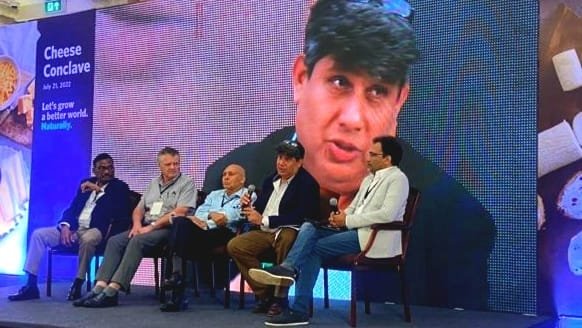
MEETING DA STUDD OF THE CHEESE WORLD: Ran into the Iconic International Cheese Master, Will Studd last night. Who is so much more than a meer international cheese specialist. Studd has been working with artisan & farmhouse cheeses for more than four decades & has traveled extensively in his vocation all over the Globe. His show Cheese Slices, which I watched like a fiend, is a very unique television & cheese documentary focused on artisanal cheese which has won several international awards. It's run eight seasons with 60+ episodes!

ARLA PRO & FORTUNE ARE DEDICATED PARTNERS FOR INDIA’S FOODSERVICE BUSINESS
Arla Pro is established as a dedicated foodservice business of one of the leading dairy companies in the world, Arla Foods & has partnered exclusively with Fortune Gourmet Specialties Pvt Ltd for the Entire Subcontinent of India. Arla Pro & Fortune Gourmet are committed to catering to the different needs of chefs, bakers and kitchen professionals all across the Indian HORECA Landscape with it
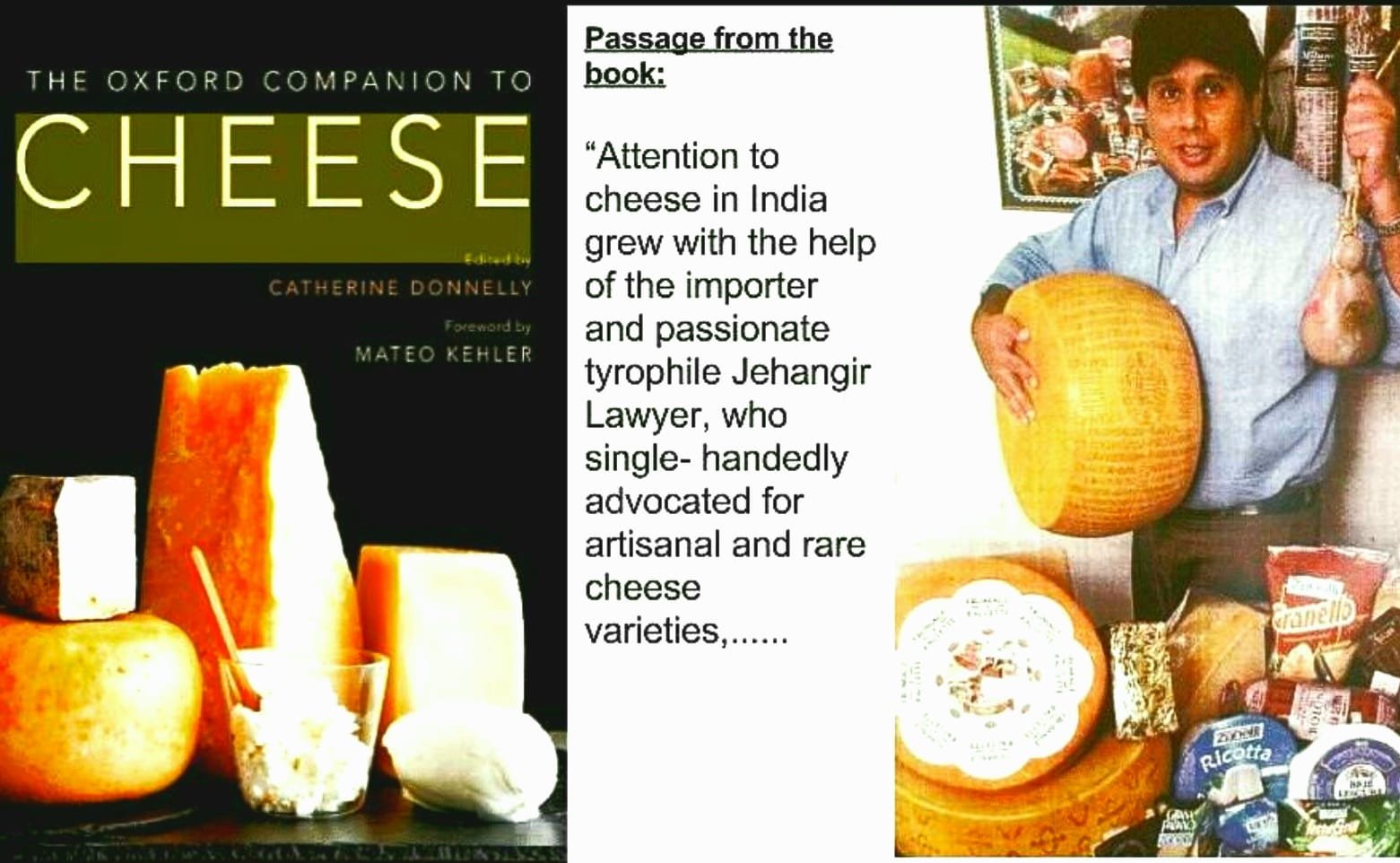
FEEDING UNDERPRIVILEGED KIDS DURING THE COVID-19 CRISIS; Meals & snacks from schools or child care centers fulfill up to two thirds of children’s daily nutritional needs & are generally healthier than those brought from home. The short-term health effects of missed meals include fatigue & reduced immune response, which increase the risk of contracting communicable diseases. Even brief periods of food insecurity can cause long-term developmental, psychological, physical, & emotional harms.
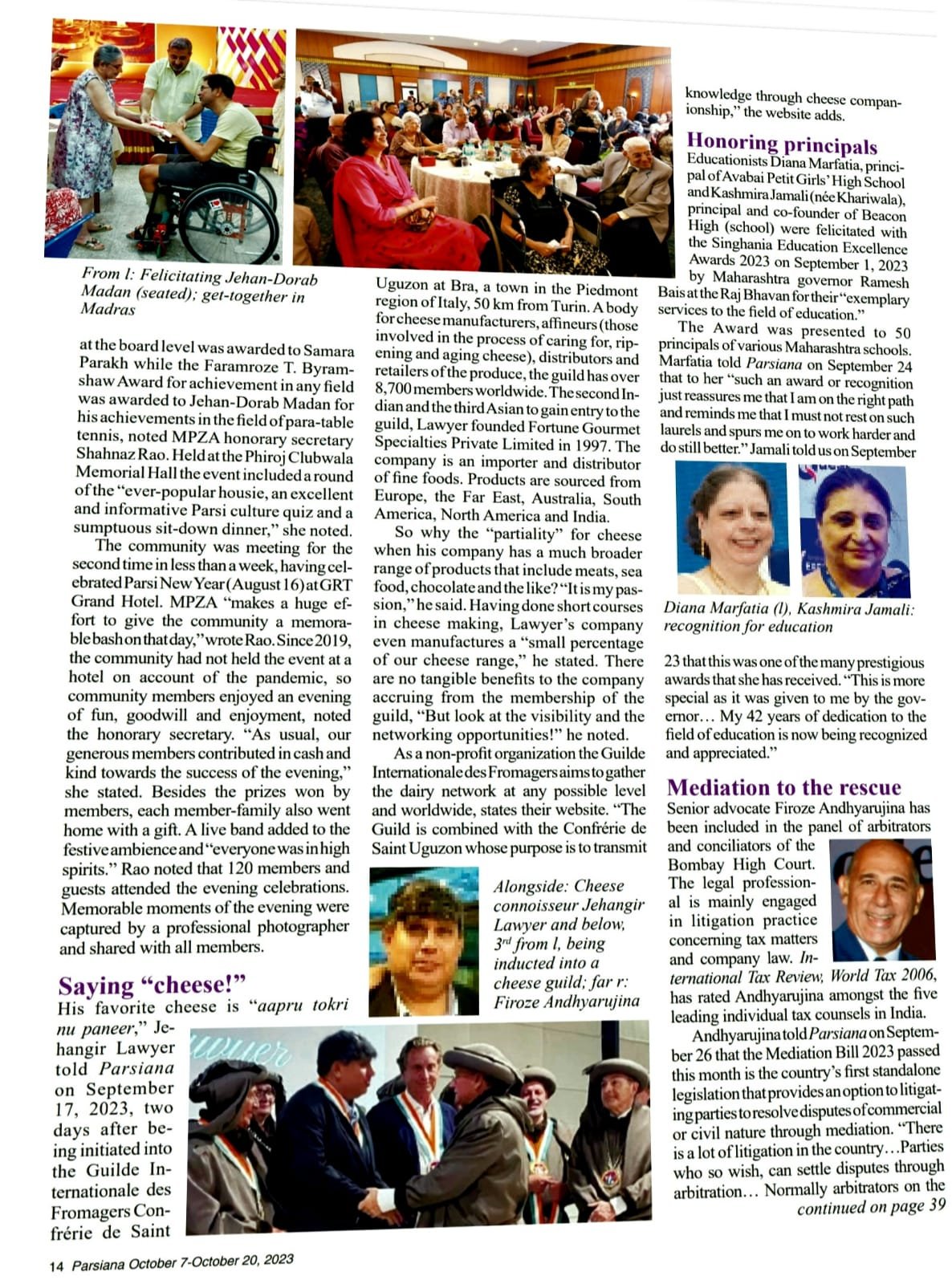
BRING JOY TO OUR NEW DIRECT INDIVIDUAL CUSTOMERS - SATISFACTION IS A THANK YOU LIKE NO OTHER ; Our customer's perception is our reality & Fortune has a certain way of creating a service, hospitality, & experience that perpetuates people who are our customers feeling like they matter. So go on & explore our range of Gourmet Delights - FORTUNE FAVOURS THE BRAVE GASTRONOME...

DELIVERING A GREAT SPEECH IS LIKE HOSTING A GOOD DINNER PARTY ! 1.Why have the dinner party? Purpose of my speech. 2.Who is invited to the dinner party and what did I know about them? Plan the speech 3.Designing the dinner party menu Prepare the speech 4.Serving the meal Perform the speech 5.Clearing the dishes PS – Post-speech So, the dinner party starts with the guests – & my speech with this culinary audience of Chefs & want to be Chefs, ( including some national & international GIANTS). Knowing who my guests – or audience – are, including their needs, interests & motivations for joining me.
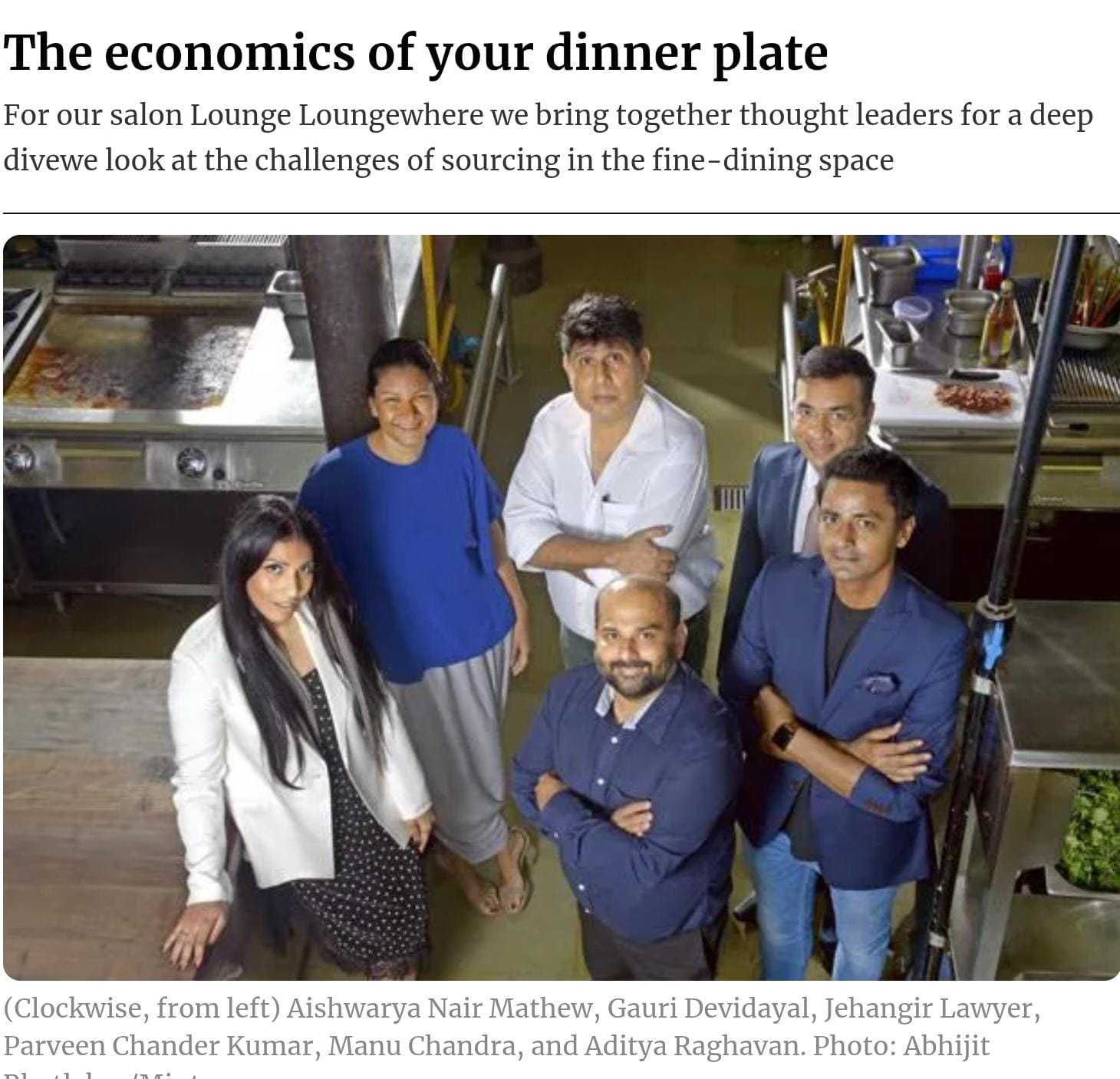
FEAR & LOATHING OF FOOD EVEN IF IT'S VALENTINES DAY - SPEAKING AT WORLDON A PLATE : Today, the day after Valentine's day, I want to share with you my thoughts about food & love. I want to encourage you to associate food with love, & to seek not just physical nourishment but also emotional nurturance from your meals. Even more boldly, I exhort you to make love a key ingredient in your diet — not just on February 14 but also on the other 364 days of the year! Not only do many of us not love — or feel loved by — our food, it actually fills us with FEAR & LOATHING.
I GOT A MENTION ON CNN NEWS18 INDIA’S PREMIERE NEWS CHANNEL well sort of
Very cool Jehangir… ‼ .You being mentioned in Cyrus’s show today on CNN NEWS 18 Kaneez carries the show on her own. you’re a GASTRONOMIC ROCK STAR ‼
“Cyrus the satirical Anchor says the Pfizer vaccine needs -70 * storage, that is a problem for India, to which Kaneez, playing the complete socialite, says Jehnagir will manage it .he is a friend and has a cold storage facility with the best Ibérico, Salami & Cheese ect…”
WATCH IT HERE↙
Awards
The GLEA Awards were not only an expression of gratitude but also helped spread the knowledge that comes from the successful case studies & best practice which will become the benchmark for many more professionals & Organizations to follow.
REASONS FOR FORTUNE RECEIVING THE AWARD
Impeccable Character and Trustworthiness:
Fortune’s name and brand speaks about our credentials, character and trustworthiness and the journey continues till date .
Fortune and Jehangir Lawyer are names known to all chefs and industry professionals.
Jehangir as a good leader “walks the talk” and in doing so has earned the right to have responsibility for others too .
Jehangir commands immense respect and authority which he has earned over the years by displaying impeccably good character and trustworthiness.
Customer Satisfaction with Supply Chain Performance
The company has always believed in serving the customers directly as this builds trust, relationship and helps to maintain hygiene & prevent an temperature shock of the perishable products .
Although the Business has grown multi folds over the years we @ FORTUNE still handle last mile deliveries on our own with our own teams & vehicles, so as to live up to the values of high qualities services with personal touch .
Fortunes follows the philology of measuring supply chain performance from eyes and feedback of the customer.
This dimension helps us to takes into account the company’s overall value proposition as well as the unique value propositions to differently tiered markets.
Product Mix
Handling a highly complex product portfolio’ which spreads from Dairy to Charcuterie to Meats to Seafood’s to Breads & even Chocolate with each item having to be stored & delivered in different temperatures.
We deliver goods( @a mean average) to 1150 + customers on daily basis from 10kgs to 1000kgs.
Re working on Network Design & Business Rules fluidity in a lot of internal changes have to be undertaken so as to transform fragmented logistics & supply chain into a lean structure that delivers with a competitive advantage through enhanced network design.
Routing & Fixed Delivery Schedule days has led to a trade-offs between cost, service & flexibility.
Our supply chain excellence & success is driven by the quality of the network we have designed for our operations.
Alignment
Fortune’s supply chain is characterized by having a tight alignment between the overall business strategies & it’s supply chain strategy & execution.
This alignment & objective for Sales & Operations has given us rich dividends and we intent to go much much further with this as a mandate.
Macro Agility
Fortune’s supply chain’s competitive advantage lies in the ability to respond consistently & sustainably faster to opportunities & keep taking first mover advantage before our competition even thinks of stepping in .
With this agility in our DNA , we were quick to add new product verticals which we could never think of being able to incorporate into our cold chain logistical storage systems.
Talent Management
Fortune’s success is attributed to low attrition & extremely dedicated supply chain teams . We recognize that talent management has a lot to do with how “sustainable” operations can be built & thus we keep working on all these aspects so as to have a pool for great supply chain teams .
A lot of focus has been given to develop internal talent so as to groom them for next level of roles
Technology Management
Being leaders in the Gourmet perishable F&B space, we realized the importance of having high end ERP solutions which integrate SCM with various other functions, providing us real time integrated data.
The need of the hour is quality response time and availability of high quality data which will ease communication flow and decision making .
Investment in areas of ERP implementation & Mobile app has been undertaken so as to prepare Fortune Gourmet Specialties as a leading organization in this specialized sector for next few decade to come, with a clear mandateof continuously embracing new technologies to give us the opportunity to raise the bar in the Indian Subcontinent.


